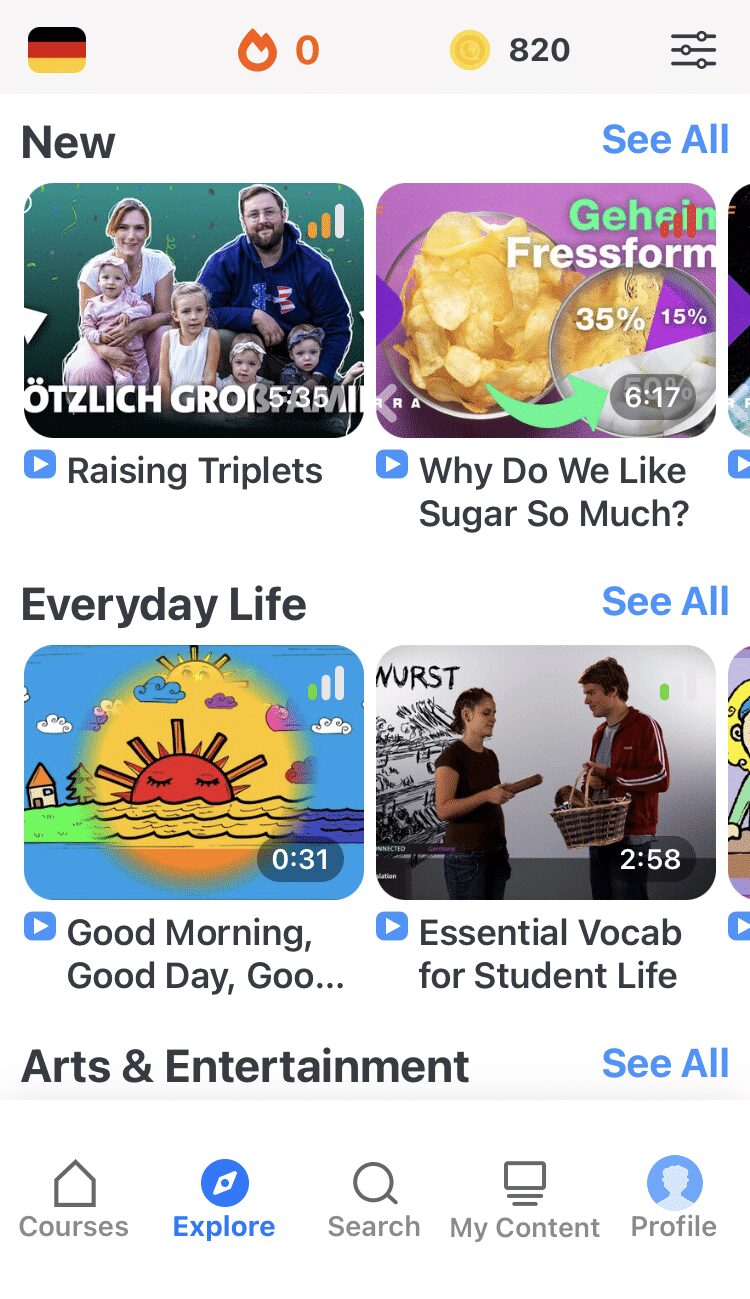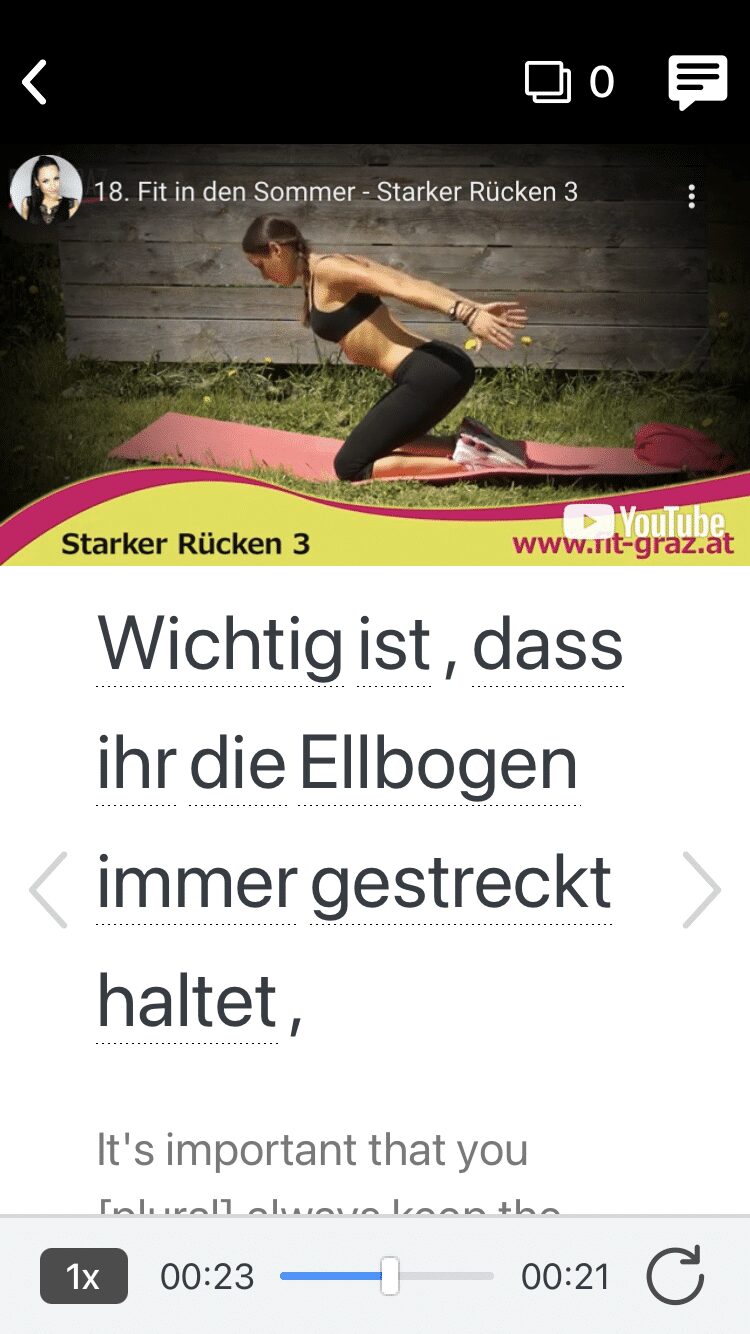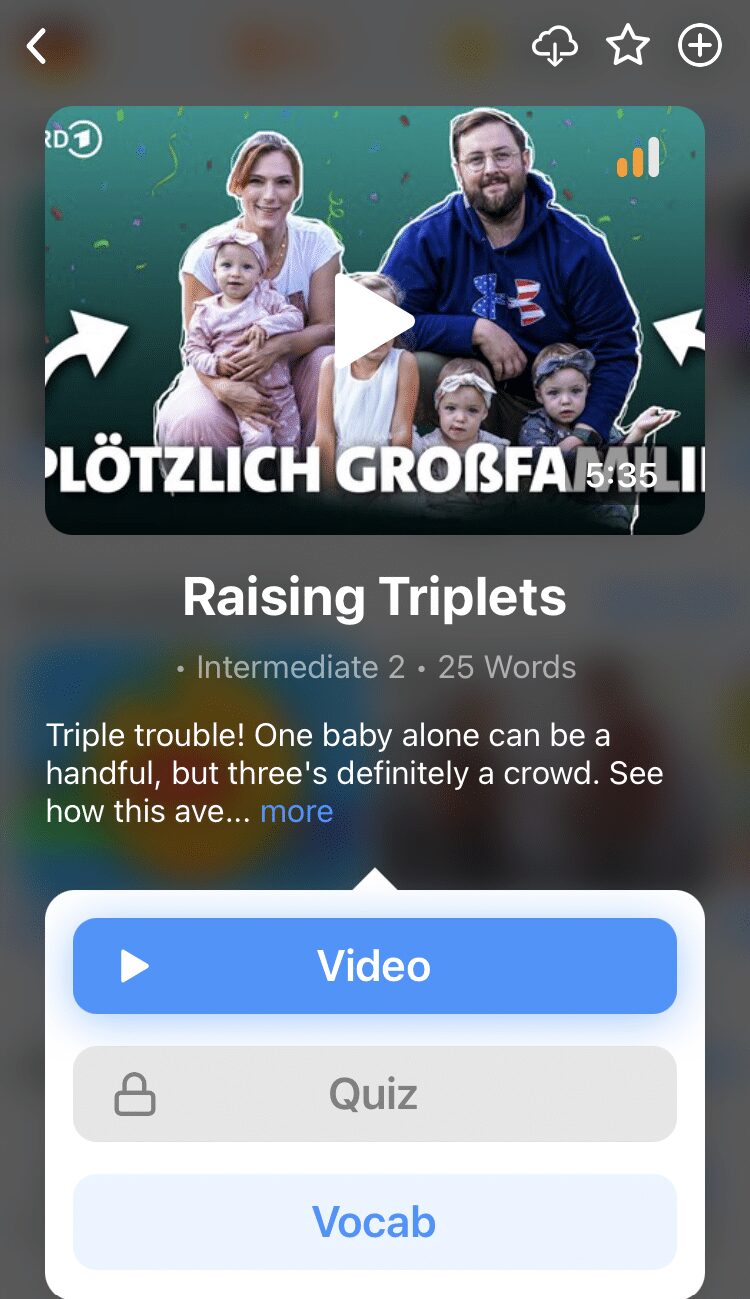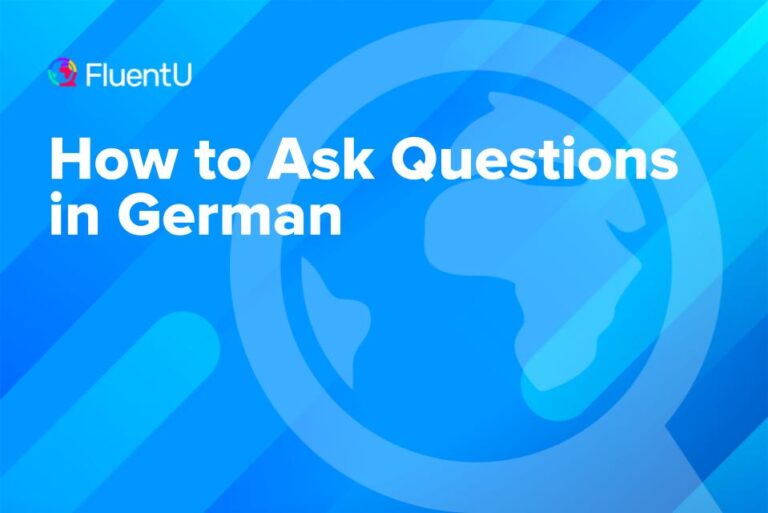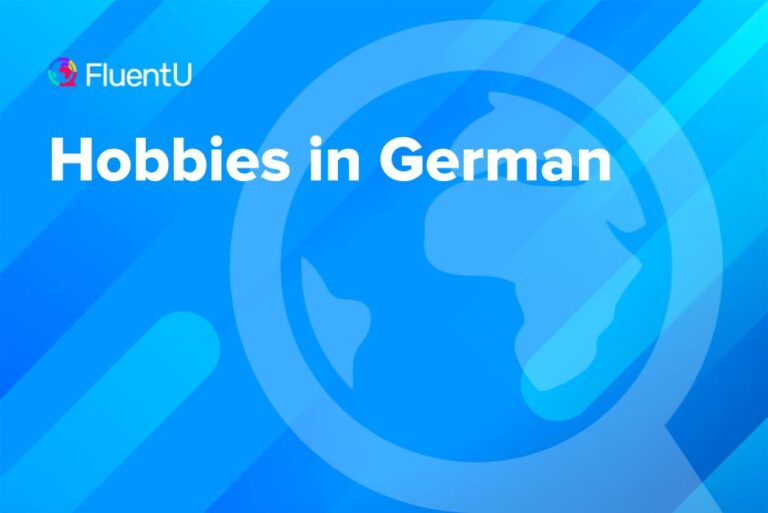35+ Popular German Christmas Vocabulary Words
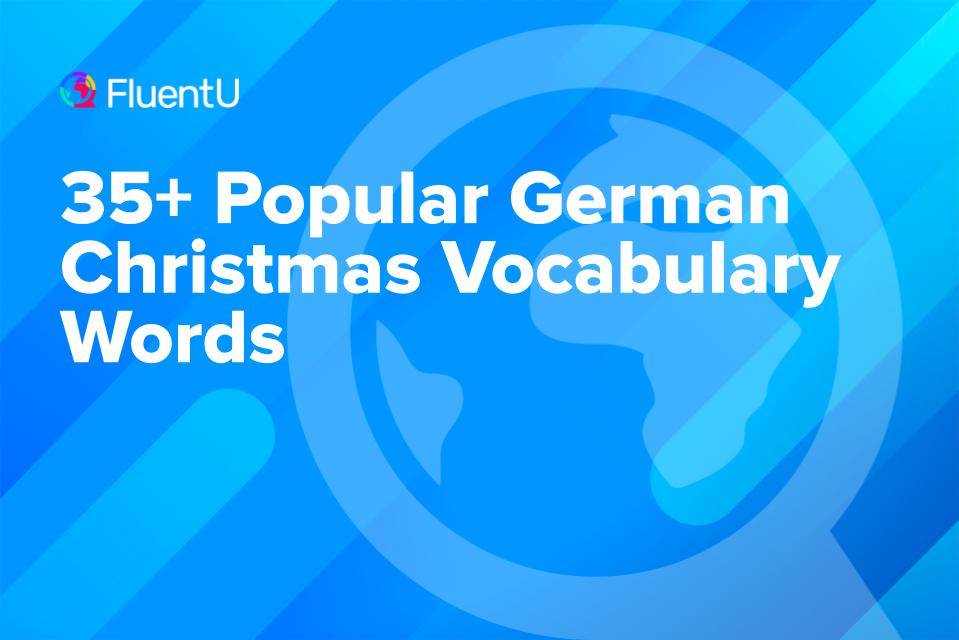
Christmas (Weihnachten) is one of the most important holidays in Germany, and it has its own specific vocabulary, like Weihnachtsmarkt (Christmas market), Weihnachtsbaum (Christmas tree) and Glühwein (mulled wine).
There are also special German traditions, such as Christmas Eve being the main day for celebrations. Keep reading for essential German Christmas vocabulary, plus some unique features of a classic German Christmas.
Download: This blog post is available as a convenient and portable PDF that you can take anywhere. Click here to get a copy. (Download)
Pre-Christmas German Traditions
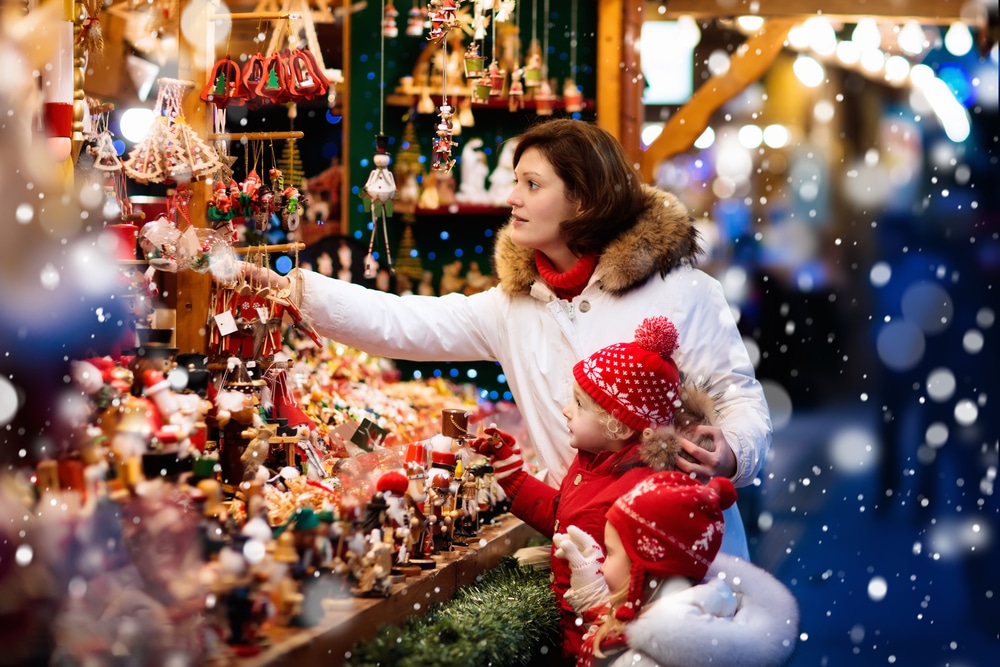
The vocabulary below will prove useful during the Advent period and in the run-up to Christmas:
- die Adventszeit
— Advent
Many people celebrate Advent by opening Advent calendars, baking Plätzchen and visiting Christmas markets. - das Plätzchen
(pl. die Plätzchen
) — Christmas cookies
If just the mention of cookies is making you hungry, you can find different recipes for Plätzchen here. - der Adventskalender
— Advent calendar
German Advent calendars can also contain small chocolates. If you’re feeling creative, why not try making your own calendar? - der Nikolaustag
— Saint Nicholas’ Day (December 6th)
On the evening of the 5th, children leave out shoes in the hope that Saint Nicholas will fill them with chocolates. - der Krampus
— Krampus
A companion of Saint Nicholas who punishes naughty children. If a child has misbehaved throughout the year, Krampus will fill his shoes with coal. - die Vorfreude — anticipation
- der Weihnachtsmarkt
— Christmas market
Many families meet up at the Christmas markets to enjoy seasonal food and drink. - der Glühwein
— mulled wine
Try making your own Glühwein—not only will it taste great, but following the recipe will help your language skills! - das Krippenspiel
— Nativity scene
There is usually a nativity scene on display at each Christmas market. - die Weihnachtskarte
(pl. die Weihnachtskarten
) — Christmas card
Germans send Christmas cards to each other in the run-up to Christmas. - die Stechpalme — holly
- der Mistelzweig — mistletoe
- der Weihnachtsstern — poinsettia
- der Weihnachtskranz — Christmas wreath
- die Weihnachtsbeleuchtung
— Christmas lights
These are often used as decorations in the days leading up to Christmas. - der Räuchermann
— incense smoker
This figurine looks like a miner, forester or even Santa Claus, and it’s meant to hold incense cones, with the smoke from the incense wafting out of its mouth. - der Nussknacker
— nutcracker
Nutcrackers actually became popular first in Germany as a symbol for Christmas. They’re usually made of wood and carved to look like soldiers or kings.
Christmas Eve and Christmas Day in Germany
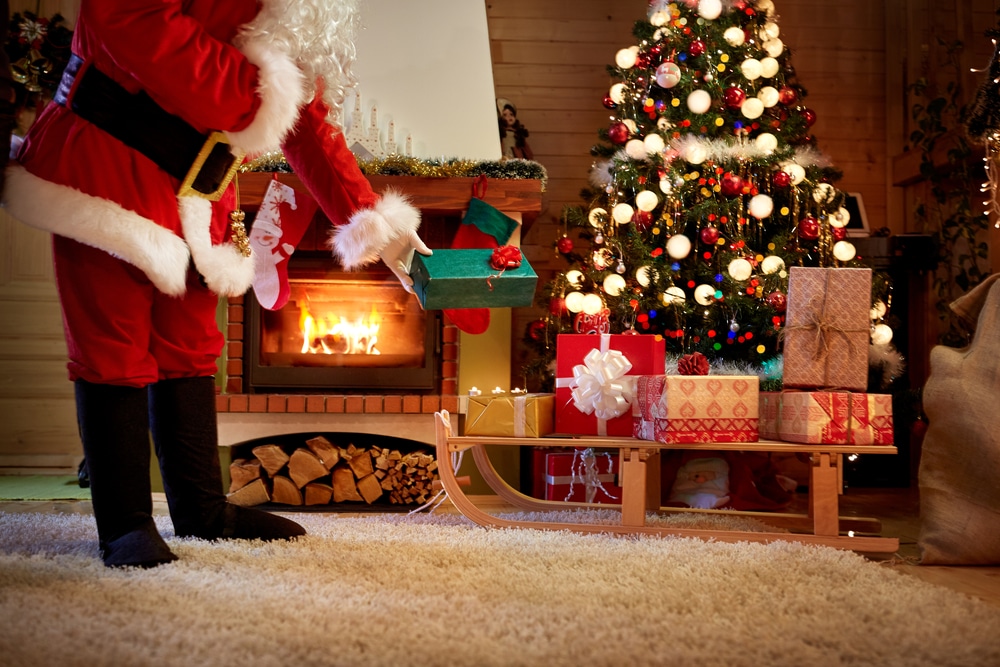
Here’s a list of German words that are closely associated with the main days of Christmas:
- das Weihnachten — Christmas
- der Heiligabend
— Christmas Eve
German families open their presents on Christmas Eve. - der Tannenbaum / der Weihnachtsbaum — Christmas tree
- den Weihnachtsbaum
/ den Tannenbaum schmücken
— to decorate the Christmas tree
Families traditionally wait until the morning of Christmas Eve to decorate their trees. - das Weihnachtsessen — Christmas dinner
die Gans — goose
In Germany, the traditional meat eaten for Christmas dinner is goose. Fancy cooking your own Christmas goose? Here’s a great traditional recipe.- der Lebkuchen
— gingerbread traditionally eaten during Advent and Christmas
You can find loads of recipes for it here. - die Zuckerstange
— candy cane
Candy canes are hung on Christmas trees. Of course, you can also choose to eat them instead. - der Christstollen
— German Christmas cake (a fruit cake covered in marzipan)
It is said that Dresden’s Stollen is some of the best in the country. - schenken — to give (presents)
- die Bescherung — gift-giving (as a tradition)
- der Weihnachtsmann
— Santa Claus
In the north of Germany, Santa Claus delivers presents during the night of December 23rd. He is known as der Weihnachtsmann. - das Christkindl
— the Christ-child
In southern Germany and Austria, the Christ-child brings gifts on Christmas Eve instead of Santa Claus. This cherub-like child is often portrayed as being blond and with wings. The Americanized spelling and pronunciation of this is Kris Kringle, which is sometimes used as an alternative name for Santa Claus. - das Geschenk
— present / gift
Need some ideas for what to give your friends and family this year? This website will give you plenty of inspiration, while helping you practice your German reading! - die Weihnachtslieder
— Christmas carols
You can’t make your German learning much more festive than singing a couple of Christmas carols. Some of the most popular English Christmas songs actually originated in Germany and have since been translated. “O Christmas Tree” is actually a German carol called “O Tannenbaum.” “Silent Night” also began life as a German carol: “Stille Nacht.” - die Christmette
— midnight mass
This special church service is held at midnight on Christmas Eve—just as it’s about to turn Christmas. - das Schlittschuhlaufen
— ice skating
Ice skating is a popular winter pastime in Germany. - der Schnee — snow
New Year’s Eve in Germany
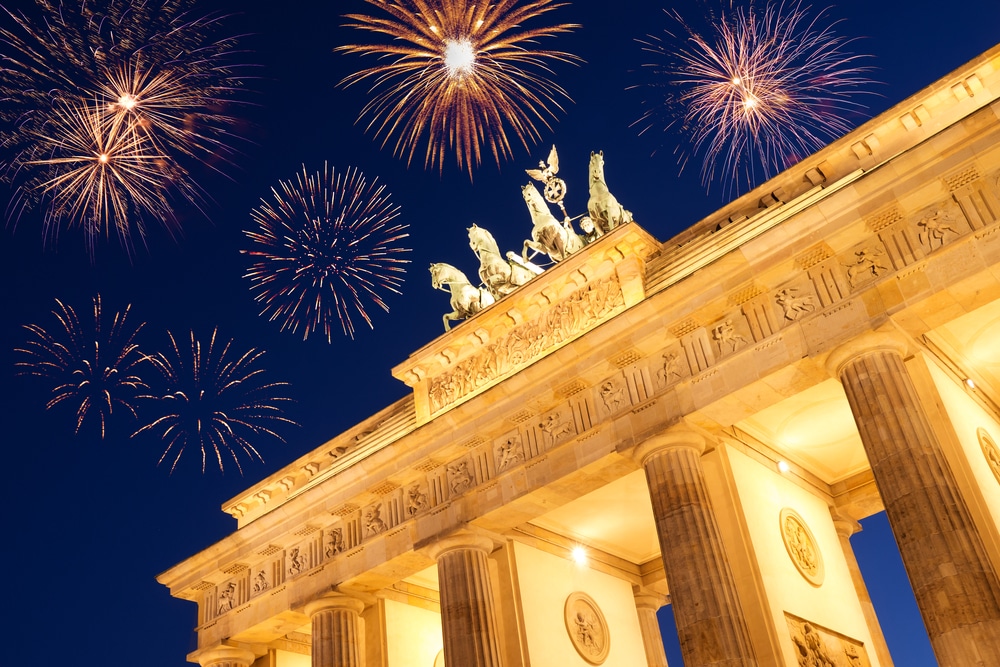
Just because Christmas is over, it doesn’t mean the party is…it’s time for New Year’s Eve!
- der Silvester
— New Year’s Eve
The German name for New Year’s Eve comes from Pope Sylvester I, whose saint feast day is December 31st. Germans celebrate Silvester with lots of fireworks and champagne. Making noise is a key part of the evening as it was traditionally believed that this would keep evil spirits at bay. Families will make loud noises with anything they can get their hands on, from drums to kitchen utensils. - das Feuerwerk
– fireworks
Fireworks are a major part of Silvester celebrations, lighting up the sky at midnight to welcome the New Year. - der Pfannkuchen
— filled donut
Donuts filled with jam are often served at Silvester parties. But watch out! It’s not uncommon for pranksters to fill some with mustard (Senf) as a practical joke…
For more useful vocabulary like this, you can check out the videos on FluentU and learn more about German culture too.
FluentU takes authentic videos—like music videos, movie trailers, news and inspiring talks—and turns them into personalized language learning lessons.
You can try FluentU for free for 2 weeks. Check out the website or download the iOS app or Android app.
P.S. Click here to take advantage of our current sale! (Expires at the end of this month.)
What Makes a German Christmas Different
In much of the English-speaking world, the whole of December feels Christmassy due to the Advent period, but our first big day is Christmas Eve. This is the night when Santa visits and when midnight mass and other church services take place.
It’s a big day in our calendar, but it isn’t our main day. December 25th is when all our major celebrations happen…think presents and a huge Christmas dinner!
However, over in Germany they do things slightly differently:
Saint Nicholas’ Day
Germany also has Advent and it lasts from December 1st right through to the 25th. However, while we have to wait the whole 24 days in between, Germany has an extra day of celebration on the 6th. December 6th is Saint Nicholas’ Day and involves presents and celebrations.
On the evening of the 5th, children place shoes on their doorsteps. If they have been well-behaved throughout the year, then Saint Nicholas (or Sankt Nikolaus in German) will fill them with chocolate.
Saint Nicholas’ Day isn’t all fun and games though. If the kids have been naughty then they will be visited by Krampus, a horned devil-like creature who travels with Saint Nicholas to punish any misbehaving kids.
In Austria and southern German towns, locals will take part in an event called a Krampuslauf or “Krampus Run.” Men from the town will dress up as Krampus and run throughout the local area, often fueled by a lot of alcohol.
Main Celebrations on December 24th
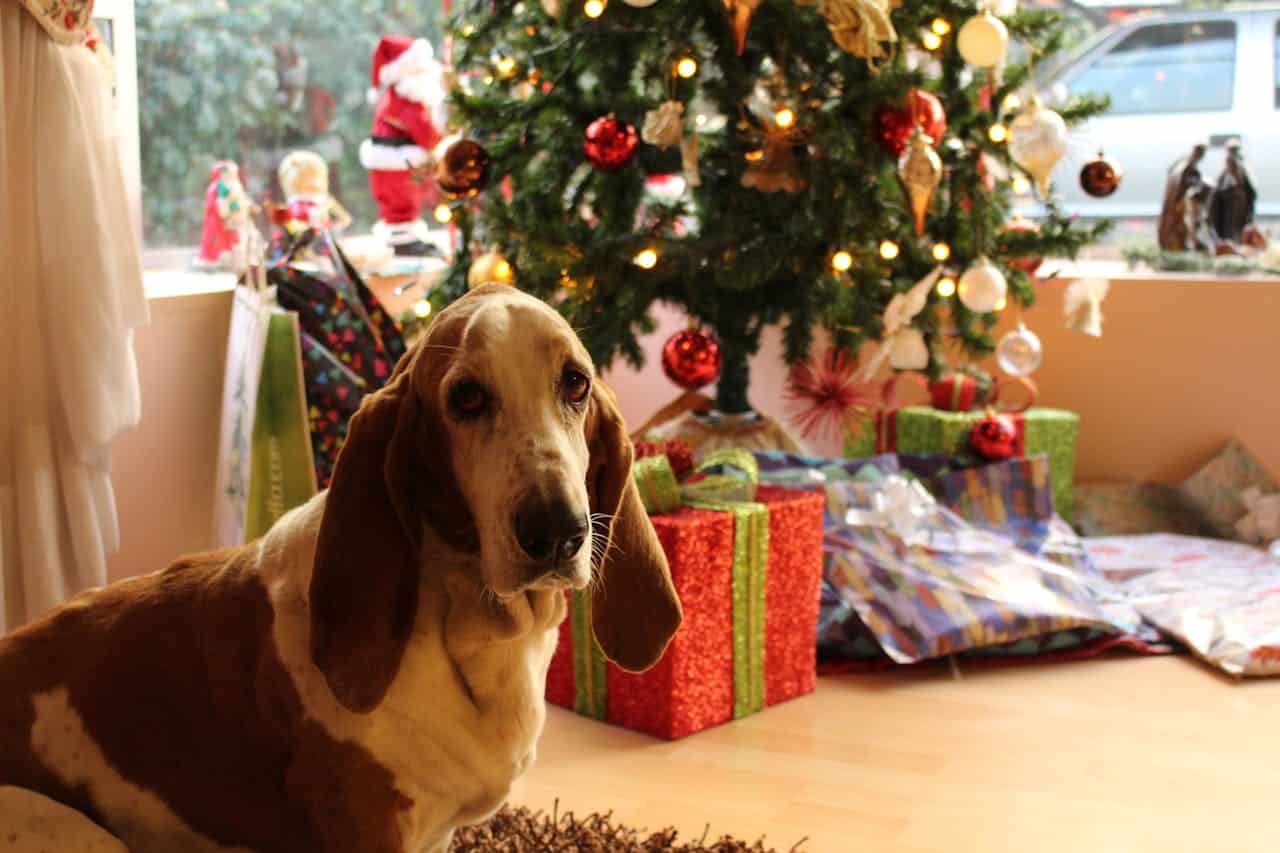
One other big difference between Christmas in the English-speaking world and Germany is the date on which we receive our presents. Here we do it all on the 25th, but for Germans, Dec. 24—or Christmas Eve—is when families gather around to exchange gifts.
The morning of Christmas Eve is when many families decorate their Christmas trees. There is one big similarity between our countries on Christmas Eve, though—it is the day that most religious families will visit church together.
Christmas Markets
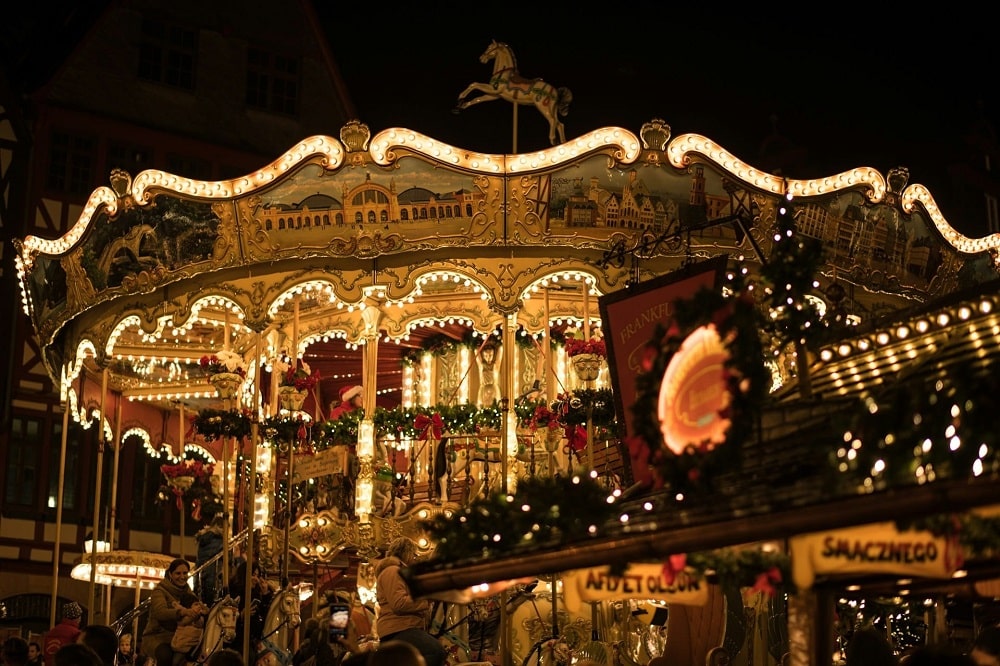
One extra aspect of Christmas in Germany is the importance of Christmas markets.
The Christmas markets are on every day during Advent. Families frequently gather together at the markets and eat and drink all the treats on offer, including Glühwein (mulled wine) and gingerbread.
On December 6th, a man dressed as Saint Nicholas will visit markets and give out gifts to children. He might even be joined by a fellow dressed as Krampus…
Feeling festive yet?
Hopefully, this blog post has gotten you ready for the holiday season.
If you’re still feeling a little Grinch-like, try including small festive exercises—like some of the ones mentioned above—in your German practice…or watch a classic German Christmas movie.
You’ll get into the Yuletide spirit soon enough!
Download: This blog post is available as a convenient and portable PDF that you can take anywhere. Click here to get a copy. (Download)
And One More Thing...
Want to know the key to learning German effectively?
It's using the right content and tools, like FluentU has to offer! Browse hundreds of videos, take endless quizzes and master the German language faster than you've ever imagine!
Watching a fun video, but having trouble understanding it? FluentU brings native videos within reach with interactive subtitles.
You can tap on any word to look it up instantly. Every definition has examples that have been written to help you understand how the word is used. If you see an interesting word you don't know, you can add it to a vocabulary list.
And FluentU isn't just for watching videos. It's a complete platform for learning. It's designed to effectively teach you all the vocabulary from any video. Swipe left or right to see more examples of the word you're on.
The best part is that FluentU keeps track of the vocabulary that you're learning, and gives you extra practice with difficult words. It'll even remind you when it’s time to review what you’ve learned.
Start using the FluentU website on your computer or tablet or, better yet, download the FluentU app from the iTunes or Google Play store. Click here to take advantage of our current sale! (Expires at the end of this month.)

